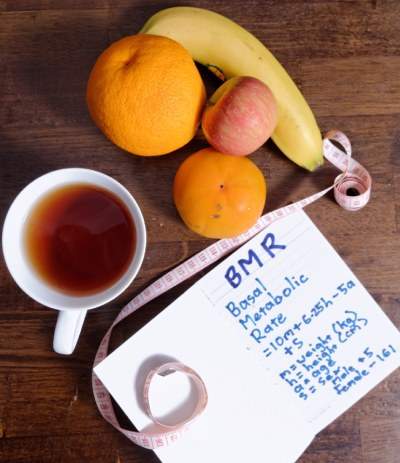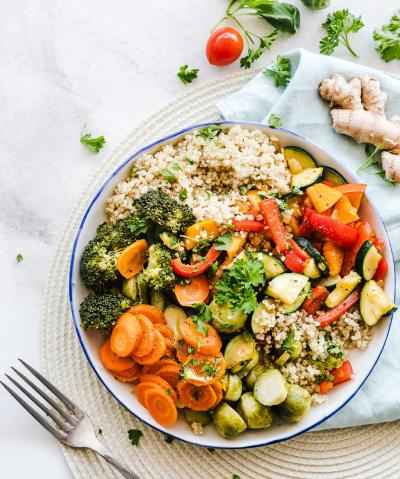METABOLISM IN BABIES AND KIDS: 0-5 YRS

Metabolism is the series of chemical reactions in our body that converts the food we eat into energy. Our bodies derive the energy to function, to eat, to move, and to think from this process. Let’s take a deeper look into what factors influence metabolism, and the calories babies and kids need for healthy growth!
WHAT IS BMR?

Metabolism plays an important role in influencing the weight gain and weight loss of babies and kids. The chunk of energy that our body burns just to maintain its organs is called the Basal Metabolic Rate (BMR).
FACTORS THAT AFFECT BMR
- Mass: The amount of muscles in our body can affect the BMR. The more the muscles, the more energy required to maintain them.
- Diet: What you eat can influence your BMR a lot.
- Age: The metabolism rate is super high in infants and kids and gradually lowers as we age. The development stage of children can touch extreme metabolic rates.
- Hormones: Hormones like thyroid influence metabolism. Hormonal disorders can trigger slower or faster metallic rates.
- Gender: Boys usually show a higher metabolic rate than girls.
- Physical Activity: Physical activity powers up the metabolic engine, making us have higher BMR even when resting.
- Genetics: Your children’s genes can also affect how fast they convert food to energy.
- Drugs: Nicotine and caffeine increase BMR while steroids and certain medications can slow it down regardless of how much you eat.
- Illness: BMR increases during illness as our bodies work harder in creating immune responses to the infection.
- Temperature: If the surrounding temperature around you is too hot or cold, your body has to work harder to maintain normalcy and this increases BMR.
- Deficiency: Any vitamin and mineral deficiency can hinder or over-activate metabolism
HOW MANY CALORIES DOES MY CHILD NEED?
BOYS
| Age | Calories per Day |
|---|---|
| 1 to 3 months | 472 – 572 calories |
| 4 to 6 months | 548 – 645 calories |
| 7 to 9 months | 668 – 746 calories |
| 10 to 12 months | 793 – 844 calories |
| 2 years | 1000 calories |
| 3 years | 1400 calories |
| 4 years | 1400 calories |
| 5 years | 1400 calories |
| 6 years | 1600 calories |
| 7 years | 1600 calories |
GIRLS
| Age | Calories per Day |
|---|---|
| 1 to 3 months | 438 – 521 calories |
| 4 to 6 months | 508 – 593 calories |
| 7 to 9 months | 608 – 678 calories |
| 10 to 12 months | 717 – 768 calories |
| 2 years | 1000 calories |
| 3 years | 1200 calories |
| 4 years | 1400 calories |
| 5 years | 1400 calories |
| 6 years | 1400 calories |
| 7 years | 1600 calories |
HOW TO FULFILL YOUR CHILD’S CALORIE NEEDS?

From birth to 6 months old, breastfeed or formula is the only source of energy. Aim to build healthy eating habits right from the start.
For children over 5 years:
- Include 5 portions of different fruits and vegetables in a day.
- Choose wholegrains wherever possible.
- Include dairy or proper dairy alternatives twice a day. Click here for detailed info on milk substitutes.
- Include many proteins like eggs, meat, beans, and pulses as possible.
- Include 2 portions of oily fish every week.
- Pick unsaturated oils over saturated ones.
- Drink plenty of water.
- Avoid food high in salt, fat, or sugar.
DOES YOUR CHILD HAVE A SLOW METABOLISM?
- Include a serving of protein in every meal.
- Encourage kids to stay active with physical play and exercise.
- Lack of sleep dampens metabolism and hinders the absorption of nutrition. A good night’s sleep is essential in maintaining a healthy metabolism.
- Give them plenty of water to drink. Slightly cold water can increase BMR.
FOODS THAT BOOST METABOLISM

Certain kinds of food can rev up your metabolism through their thermic effect. The higher your metabolism, the higher calories you burn, and the easier to use up body fat.
- Proteins
Protein-rich food like eggs, fish, meat, dairy, nuts, seeds, and legumes use up the most energy of all foods. This also includes lentils, pulses, peas, and beans. The TEF (Thermic Effect of Food) goes up by 15 – 30% for a few hours after protein intake.
- Chili Peppers
Capsaicin, the hotness giving element of chili, is also a metabolic booster. Including capsaicin helps the body burn up to 50 extra calories a day and increases fat oxidation.
- Ginger
Ginger is an excellent metabolic booster, kickstarts metabolism, and helps burn calories faster.
The calorie guidelines mentioned in this article are mere guidelines. They can give you a general idea if your child is getting too much or too little calories. With children, you mustn’t count calories each day or each meal – that will set up a bad foundation too early. Children can also go through phases of rapid growth where they might get hungry every hour. It is important to observe your child and make slow changes that don’t take the fun out of food.
If you still believe your child is intaking too much or too little for his / her age, consult your doctor to work through pinpointing the causes of this condition and how you can manage it.